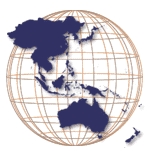Officials
Offical

United States policy toward the troubled and perilous region of East Asia–home of volatile conflicts between North and South Korea, China and Taiwan, and the military junta of Burma and its own people–is now the province of a highly esteemed academic and international relations specialist, Dr. Kurt Campbell. Campbell was confirmed by the Senate on June 26, 2009, as the new Assistant Secretary of State for East Asian and Pacific Affairs. Perhaps a harbinger of political conflicts to come, conservative Republican Kansas Senator Sam Brownback had put a hold on Campbell’s nomination as a way to press the Obama administration to consider imposing more restrictive economic sanctions on the military dictatorship ruling Burma (also called Myanmar).
- Latest News
- D.C. Public Schools will Teach all Second-Graders to Ride a Bike
- New Rule in Germany Limits Sales of Sex-Themed E-Books to 10pm to 6am
- What Happened to the 6-Year-Old Tibetan Boy the Chinese Government Kidnapped 20 Years Ago?
- U.S. Ambassador to Turkey Photoshops his Hair Color to Mock Turkish Mayor
- Mystery Artist Calls Attention to Unfixed Potholes by Drawing Penises around Them





